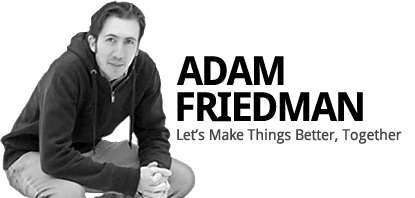Dear Occupy Boston,
I am honored and blessed to stand with Occupy. Together we are reawakening the nation, and the world, to go straight to the heart of our collective political life to demand with urgency and conviction: Democracy is for people!
Consider this our formal introduction. I write to you as a democracy reformer of seven years. I sit on the board of MassVOTE, and I’m a volunteering member of Common Cause, The League of Women Voters, and MassPIRG. I also run Citizens for Voter Choice. These organizations have spent decades fighting to reform democracy to make it more honest, responsive, and inclusive. These groups are strictly non-partisan in their goals, and only MassPIRG and LWV take positions on bread-and-butter issues like health care, jobs, and education.
We need to study these organizations and their full history of political struggle. Their staffers and board members are older and in many ways wiser than many of us. And in my opinion, they hold the golden lesson for our activism: we must dig deeper to help people better access the power-infrastructure which undergirds our shared plight. We must act to change our democratic system itself. The victory does not lay in winning Wall Street regulatory reform, or full funding of public schools, or even a health care system that puts people before profits. These issues are all crops, and a farmer who merely inspects her crops for good health will not succeed. The farmer must be utterly obsessed with the soil, to ensure the crops are getting what they need to grow. Thus, I urge us to invest most of our energy in tilling and enriching this soil — this soil of democracy.
The soil of democracy is how democracy works. There are rules to the game that will make the difference between passing a good bill into law this year, in three years, in ten years, or not at all. As most of you know, business interests in Washington have spent billions of dollars to study and master these rules, to ensure that bills favorable to the 1% pass this year; and bills unfavorable to the 1% are stymied indefinitely until they either pass under public pressure, sometimes with watered-down language; or, more commonly, they just never pass at all.
Understanding what we, the 99%, are up against in the political arena, I would like to emphasize: whatever the specific policies that we demand and win, we must ensure that our democratic system will keep these victories protected, lest they fall prey to future influxes of special interest money to dismantle our gains. It is in the understanding of this danger that I strongly urge the Occupy movement to make democracy reform the central policy demand, and view our other demands as secondary spokes to this wheel, as they will become attainable and maintainable — once we win a more responsive democratic process.
Here are what I identify as the most urgent problems at the core of our democracy, and the best working solutions:
Citizen-Funded Elections: Get Money out of Politics and People Back In
Problem: A culture of corruption has embedded itself in Washington in which well-meaning elected officials survive by exchanging legislative favors for campaign contributions. Candidates and office-holders are corrupted by unlimited private donations and by independent ad spending from allies.
Solution: A Citizen-Funded Election System (aka “Clean Elections,” “Fair Elections”, or public financing of elections) at the federal and state levels, as well as mandated disclosure of all independent political spending (e.g the DISCLOSE Act). Clean Elections works by requiring candidates to qualify for a taxpayer-funded campaign grant by raising a large number of small-dollar (e.g, $5) contributions from individuals. Once the campaign is over, all money raised is returned to the public treasury, which would put an end to massive campaign war chests. Clean Elections thereby breaks the dependency of legislators on lobbyist and special-interest funding, and incentivizes candidates to engage with a very broad base of small-dollar-contributing supporters rather than big-dollar bundling and fund-raising dinners for the wealthy.
Clean Elections has already been implemented successfully in Connecticut, Maine, and Arizona, and between 60-80% of all state legislators chose to run using this system.
Recommended Reading:
Capitol Punishment by Jack Abramoff
So Damn Much Money by Robert Kaiser
Republic, Lost by Lawrence Lessig
More on Wikipedia: http://en.wikipedia.org/wiki/Campaign_finance#Further_reading
Ranked Choice Voting: End the Party Duopoly and Make Elections More Competitive
Problem: In the most diverse nation in the world, we, the voters, typically have a mere two choices in our general elections. Worse off are the people of Massachusetts, wherein a single political party controls about 90% of the state legislature, and about 70% of our state legislative seats go uncontested in general elections. Even competitive races leave us, the voters, with the feeling that we’re not getting the best choices. A critical “design flaw” of our current voting system is known as the “spoiler effect.” In our most competitive elections, there are oftentimes two candidates who are ideologically similar. So the weaker candidate’s presence in the race siphons off needed votes from their stronger counterpart, votes crucial to win the election. The result? The candidate who is ideologically opposed to both of them ends up winning, and s/he is not the candidate that a majority of voters actually want. (The most famous example is Bush, Gore, and Nader competing in Florida in the 2000 Presidential election.)
Solution: Ranked Choice Voting (aka “Instant Runoff Voting”) and Proportional Representation (aka “Choice Voting”) provide the proper incentives for voters to vote their values with a smart ballot on which they rank their preferences in numerical order. The design of RCV/PR eliminates the spoiler effect entirely, and encourages more candidates to run for office who previously wouldn’t, since never again would they be pressured to drop out of a race for fear of being a spoiler. RCV/PR can radically improve our elections with healthy competition, more public debate, a more diverse menu of candidates, majority winners; and consequently, better representation.
RCV has been implemented successfully in several US cities to elect their mayor and other offices, including Cambridge, MA; Oakland, San Francisco, and Berkley, CA; Minneapolis and St. Paul, MN; Portland, ME, and others. RCV is also used nationally in Australia, Ireland, and Malta; as well as in various localities around the world.
Recommended Reading:
Gaming the Vote by William Poundstone
“Rank the Vote” by Nicholas Stephanopoulos (The New Republic, October 1, 2010)
More on Wikipedia: http://en.wikipedia.org/wiki/Single_transferable_vote#External_links
More Democracy Reforms
There are many other policies in the areas of transparency, ethics, and elections which would benefit every hard-working family in the United States by making government more accountable, accessible, and responsive. I’ve decided to highlight the two game-changing policies above to ensure my contribution stays as focused as possible. However, I am happy to help the Occupy movement to organize behind any of the following:
- Public Official-to-Lobbyist Ban (end the “revolving door”)
- Same-Day Voter Registration
- Early Voting
- Election Day as a National Holiday or Weekend Voting
- People’s Hours (evening-time bill hearings and other public meetings)
- Candidate “Common Application” (a standard assessment package for each candidate that requires full itemization of work history and topical essay questions).
- Public Records Online (in a timely manner and in accessible, easy-to-navigate formats)
- Participatory Budgeting
- Term Limits (for legislators)
- And much more!
I am here to serve the movement in the best way that I can. Let us work together to create lasting change for our nation, and for the world.
Sincerely,
Adam Friedman
Somerville, MA


